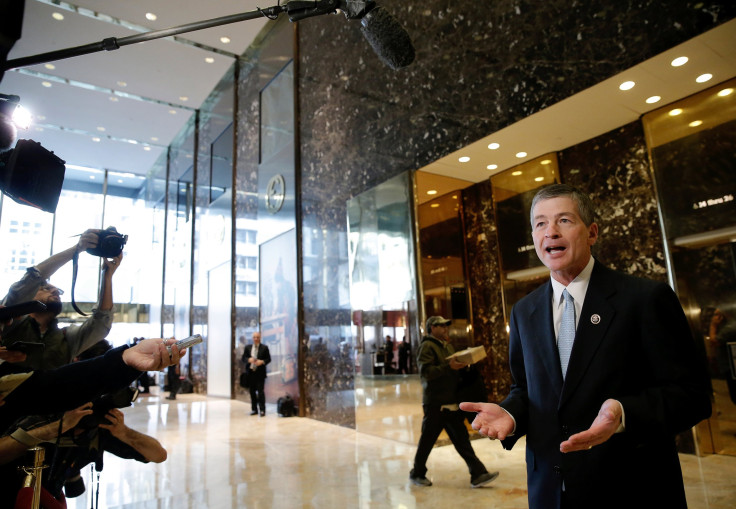Wall Street Money Behind New Bill To Repeal Dodd-Frank Act Reforms

The Financial CHOICE Act, a bill to roll back the finance industry regulations and monitoring implemented by the 2010 Dodd-Frank Act, passed in the House Financial Services Committee Thursday — with significant monetary support from Wall Street.
The 34 committee members, all Republican, who voted in favor of the bill, received nearly 80 percent more 2016 election funding from commercial banks and holding companies than the 26 who voted against it, all Democrats, the nonpartisan research organization MapLight found. More specifically, the group noted, the CHOICE Act’s yea-voters received, on average, $72,191 from those finance firms, compared to nay-voters’ average of $40,437.
In addition to bankrolling the campaigns of the lawmakers involved, financial industry firms and trade associations collectively spent millions on lobbying efforts related at least in part to the CHOICE Act in the first quarter of 2017, according to the House lobbying database. Among those dozens of lobbying groups and companies were the insurance giant American International Group Inc., which spent $390,000; Bank of America Corp., which spent $680,000; the investment firm BlackRock Capital Management Inc., which also spent $680,000; Credit Suisse’s American arm, which spent $280,000; JPMorgan Chase Holdings LLC, which spent $710,000; the insurance holding corporation MetLife Group Inc., which spent $840,000, and Goldman Sachs Group Inc., which spent $710,000.
The bill, which committee Chairman Jeb Hensarling (R- Tex.) introduced April 26 as “an alternative to the failed Dodd-Frank Act,” eliminates a litany of measures that were meant to prevent a repeat of the 2008 financial crisis.
Hensarling’s bill would eliminate Dodd-Frank’s so-called “Volcker Rule,” named for the economist and former Federal Reserve Chairman Paul Volcker, which forces insured depository banks to separate their proprietary trading from consumer banking activities, essentially keeping them from acting like — and working with — hedge funds and private equity firms. The rule already had plenty of loopholes, and many argued it was far from effective, but banks considered its compliance costly and pushed repeatedly for a delay in its full implementation.
The CHOICE Act would limit the ability of investors to put forward proposals for shareholder votes on issues such as firms’ environmental impact, lobbying activities, campaign finance, equal pay and other issues — unless they own 1 percent of the company’s shares, equal to, in the case of Apple Inc., about $7.8 billion as of this week.
It would also dilute the authority of a regulatory body, known as the Consumer Financial Protection Bureau and spearheaded by Sen. Elizabeth Warren (R-Mass.), which provided billions of dollars in financial relief to 27 million Americans, by keeping it from prohibiting arbitration and banning bank products and practices it finds abusive.
In an attempt to draw back on the designation of “too big to fail,” the CHOICE Act would take away the authority of another regulatory body created to oversee non-bank financial institutions, the Financial Stability Oversight Council, to classify those institutions as important to the integrity of the financial system. While they’re not banks, financial institutions like AIG and Prudential Financial — and, previously, MetLife and GE Capital — which the agency determined have the capacity to trigger a financial collapse in the event of their insolvency, came under extensive supervision by this authority. The goal of the boost in oversight was to avoid a bailout similar to the one that saved AIG in 2008.
© Copyright IBTimes 2024. All rights reserved.





















